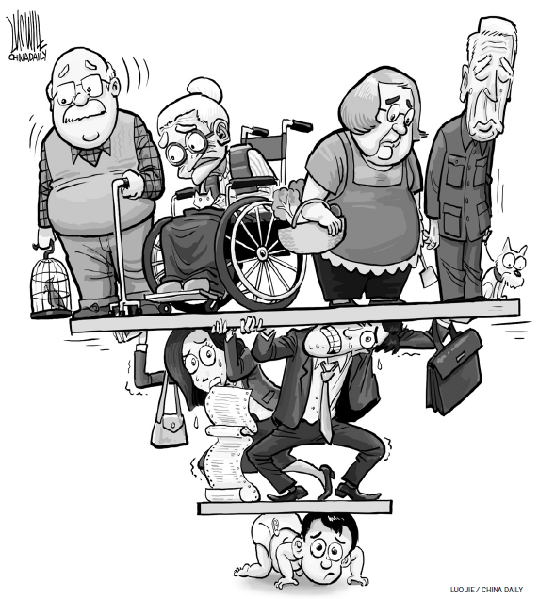Family policy deserves a rethink
The National Health and Family Planning Commission has reiterated that even if the family planning policy were to be adjusted, it would not mean that couples could have a second baby if one of them came from a single-child family.
Nevertheless, it's time the authorities weighed the pros and cons of the family planning policy, which was implemented in the late 1970s to check population growth. There is no doubt that unchecked population growth in the 1980s and 1990s would have caused more harm than good to the families as well as to the country, because of the weak national economic foundation and already large population.
According to the current family planning policy, urban couples can have only one child. An urban couple can have a second child only if husband and wife both are from single-child families. In rural areas, though, couples have been allowed to have a second child if their firstborn is a girl. Ethnic groups other than Hans, on the other hand, have always been free to have two or more children.
The family planning policy has reduced the country's birth rate and curbed the rate of population growth, but it has also resulted in some harmful side effects, such as an imbalanced family structure, a skewed gender ratio, and an aging society.
Things have changed drastically since the late 1970s, so the authorities should give a serious thought to adjusting the family planning policy to suit the demands of the ongoing reform and opening-up.
In terms of happiness, social harmony and ideal population structure, a family should have two to three children, which is not possible in China under the present circumstances. But the authorities could, for example, allow couples to have a second child if one of them comes from a single-child family.


























